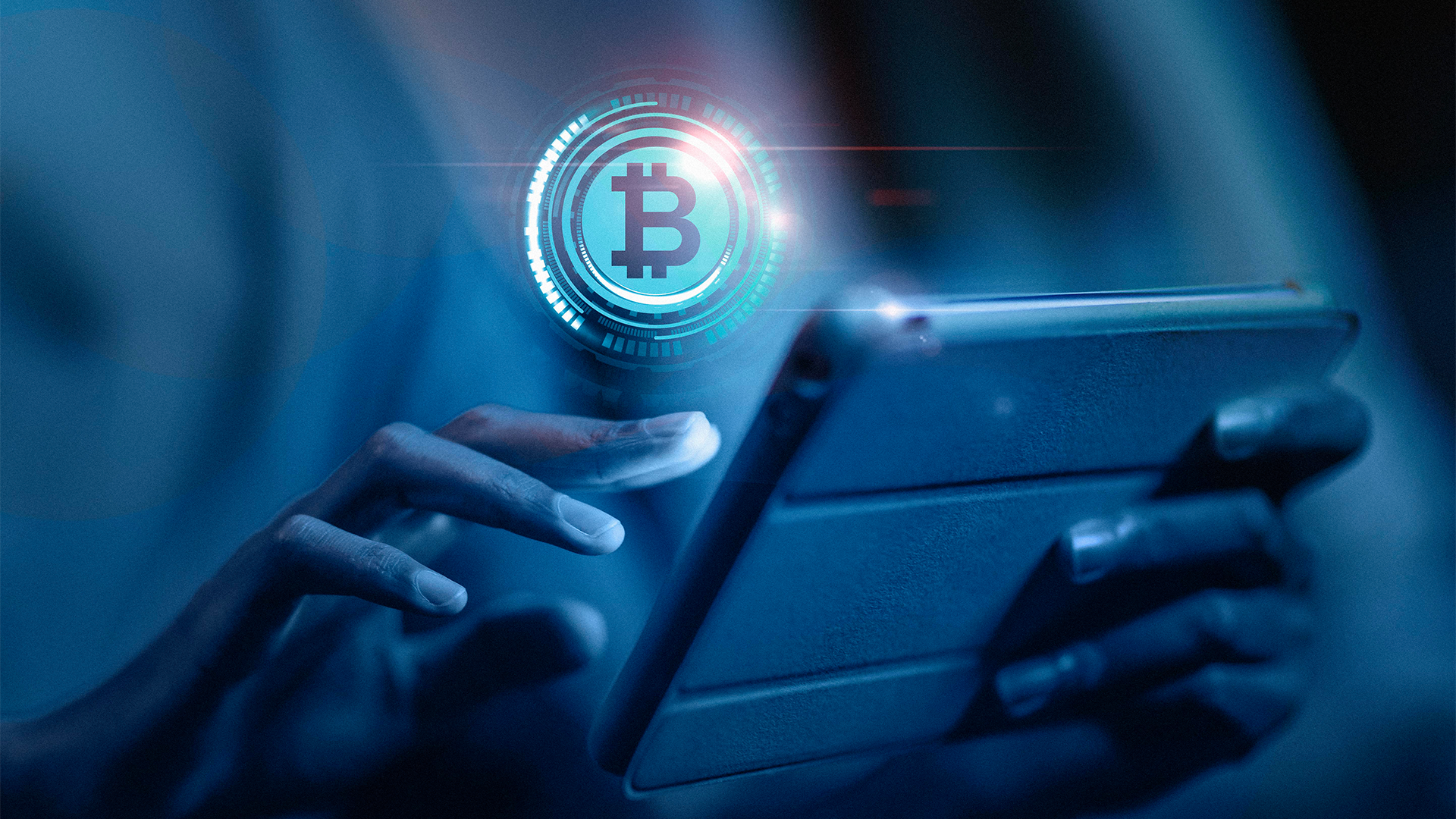
Thank you
Our team of industry domain experts combined with our guaranteed SLAs, our world class technology .


Get Immediate Help
Cryptocurrencies have revolutionised the financial landscape, offering decentralised, secure, and efficient ways to transact and store digital assets. Yet, with great innovation comes great responsibility—crypto wallet protection and safeguarding cryptocurrency transactions are now more critical than ever. Whether you're an individual investor or an organisation navigating the blockchain, protecting your digital assets from cyber threats is non-negotiable.
This is where Cybersecurity as a Service (CaaS) steps in, providing robust solutions for securing wallets, monitoring transactions, and preventing cryptocurrency fraud. In this blog, we’ll explore why cybersecurity is vital for blockchain users, common risks in crypto transactions, and how managed cybersecurity services can offer peace of mind in the world of digital currencies.

Crypto wallet protection involves safeguarding the private keys and access credentials used to store and manage cryptocurrencies. These wallets can be hardware-based (physical devices) or software-based (online, desktop, or mobile applications). Regardless of the type, ensuring their security is crucial to prevent unauthorised access and theft.
The decentralised nature of blockchain technology offers strong security, but it’s not immune to cyber threats. Here are the key risks associated with crypto transactions:
1. Private Key Theft
The private key is the backbone of your cryptocurrency wallet. If stolen, hackers can gain full access to your funds.
2. Phishing Attacks
Cybercriminals use fake emails, websites, or apps to trick users into sharing their wallet credentials or private keys.
3. Malware and Ransomware
Malware specifically designed to target cryptocurrency wallets can infect devices and steal sensitive information.
4. Fake Wallets and Exchanges
Fraudulent platforms masquerading as legitimate wallets or exchanges can trick users into depositing their funds.
5. Lack of Multi-Factor Authentication (MFA)
Without MFA, wallets are more vulnerable to unauthorised access, especially in software-based solutions.
6. Poor Transaction Monitoring
Unmonitored transactions may expose wallets to fraudulent activities or scams, leading to financial losses.

Cybersecurity as a Service (CaaS) provides tailored, expert-driven solutions to address the unique challenges of cryptocurrency security. By outsourcing to a trusted cybersecurity service provider, individuals and organisations gain access to advanced tools and expertise without the need for in-house resources.
Cryptocurrency Transaction Monitoring: Tracks transactions in real time, flagging suspicious activities and unauthorised access attempts.
Blockchain Security Solutions: Protects the underlying blockchain network from vulnerabilities and potential breaches.
Digital Wallet Security: Implements advanced security protocols like encryption and MFA to protect wallet access.
Fraud Prevention: Identifies and mitigates threats such as phishing, malware, and fake wallet schemes.
Private Key Protection: Ensures private keys are stored securely and accessed only by authorised users.

1. Enhanced Fraud Prevention
With real-time monitoring and threat detection, CaaS minimises the risk of phishing, malware, and fake wallet scams.
2. Secure Asset Storage
Advanced encryption, MFA, and hardware-based solutions protect wallets from unauthorised access.
3. Continuous Security Monitoring
Proactive monitoring ensures threats are detected and mitigated before they escalate.
4. Scalable Solutions
Whether you’re an individual or a crypto exchange, managed services scale to meet your needs.
5. Regulatory Compliance
For businesses handling cryptocurrencies, CaaS ensures compliance with international standards and regional regulations.
While CaaS offers comprehensive solutions, users should also adopt the following best practices:
1. Use Hardware Wallets
Store your cryptocurrencies in hardware wallets, which are less vulnerable to cyberattacks compared to software-based wallets.
2. Enable Multi-Factor Authentication (MFA)
Add an extra layer of security by requiring multiple forms of verification for wallet access.
3. Keep Private Keys Offline
Never store private keys online or share them with anyone. Use secure offline storage solutions instead.
4. Regularly Update Wallets and Software
Ensure wallets and associated software are up-to-date with the latest security patches.
5. Monitor Transactions Continuously
Use cryptocurrency transaction monitoring tools to track activities and flag irregularities.
6. Avoid Public Wi-Fi for Transactions
Conduct transactions only on secure, private networks to reduce the risk of interception.
Blockchain technology, though inherently secure, can still face vulnerabilities without proper oversight. Here’s how CaaS fortifies blockchain networks:
Threat Detection and Response: Identifies potential vulnerabilities and neutralises threats in real time.
Digital Asset Protection: Safeguards user funds and sensitive data stored on blockchain-based platforms.
Private Key Management: Secures private keys using advanced encryption and access controls.
Compliance Support: Helps businesses align with regulatory requirements for blockchain-based operations.
For organisations involved in cryptocurrency transactions and blockchain-based operations, the following Microminder Cybersecurity (CS) services are particularly relevant for addressing crypto wallet protection and related security challenges:
1. Threat Intelligence and Hunting Services
How It Helps: Provides actionable insights into emerging threats targeting cryptocurrency wallets, blockchain platforms, and related systems.
Benefit: Proactively identifies and mitigates risks like phishing schemes, ransomware, and insider threats.
2. Vulnerability Assessment and Management
How It Helps: Scans wallets, blockchain systems, and cryptocurrency platforms for vulnerabilities and suggests actionable fixes.
Benefit: Prevents hackers from exploiting weaknesses, ensuring robust protection of crypto assets.
3. Managed Detection and Response (MDR)
How It Helps: Offers 24/7 monitoring of crypto wallets, blockchain systems, and transactions to detect and respond to threats in real time.
Benefit: Ensures immediate action to mitigate risks, preventing potential losses or breaches.
4. Security Architecture Review Services
How It Helps: Evaluates the overall security design of blockchain and crypto wallet systems to identify gaps and recommend improvements.
Benefit: Strengthens the security framework, protecting sensitive data and cryptocurrency transactions.
5. Compliance Gap Analysis and Reporting
How It Helps: Assesses cryptocurrency platforms and blockchain systems for compliance with regulatory standards such as GDPR or regional crypto regulations.
Benefit: Ensures organisations meet legal requirements, avoiding penalties and building customer trust.
6. Endpoint Detection and Response (EDR)
How It Helps: Secures devices used for accessing crypto wallets and blockchain platforms from malware, ransomware, and unauthorised access.
Benefit: Protects endpoints like mobile devices, desktops, and hardware wallets, ensuring the safety of digital assets.
7. Security Orchestration, Automation, and Response (SOAR)
How It Helps: Automates incident response, compliance reporting, and threat detection for blockchain systems and cryptocurrency operations.
Benefit: Enhances efficiency, reduces manual effort, and accelerates response to potential breaches.
8. Data Loss Prevention (DLP) Solutions
How It Helps: Monitors and prevents unauthorised access or transfer of sensitive data, including private keys and transaction records.
Benefit: Ensures sensitive crypto data is kept secure, reducing the risk of fraud or theft.
9. Blockchain Security Solutions
How It Helps: Provides tailored security for blockchain environments, including encryption, access control, and integrity checks.
Benefit: Safeguards the blockchain infrastructure from tampering, fraud, and cyberattacks.
10. Identity and Access Management (IAM)
How It Helps: Implements robust access control mechanisms, such as multi-factor authentication (MFA) and role-based permissions, for crypto wallets and platforms.
Benefit: Prevents unauthorised access and ensures only legitimate users can transact or manage crypto assets.
11. Incident Response Retainers
How It Helps: Provides immediate access to cybersecurity experts in case of a breach or fraud incident.
Benefit: Minimises losses, protects crypto assets, and ensures rapid recovery from incidents.
By leveraging these Microminder CS services, organisations can effectively protect crypto wallets, ensure secure transactions, and maintain a competitive edge in the fast-evolving cryptocurrency market.
The world of cryptocurrencies and blockchain is filled with opportunities, but it’s also fraught with risks. From protecting private keys to securing transactions, robust cybersecurity measures are essential to ensure peace of mind. Cybersecurity as a Service offers a comprehensive solution, combining expertise, advanced tools, and real-time monitoring to safeguard your digital assets.
Take control of your cryptocurrency security today. Protect your wallets, secure your transactions, and embrace the future of digital finance with confidence.
Don’t Let Cyber Attacks Ruin Your Business
Call
UK: +44 (0)20 3336 7200
KSA: +966 1351 81844
UAE: +971 454 01252
Contents
To keep up with innovation in IT & OT security, subscribe to our newsletter
Recent Posts
Penetration Testing | 10/11/2025
Cloud Security | 07/11/2025
Cybersecurity | 06/11/2025
What is a cryptocurrency wallet?
A cryptocurrency wallet is a digital tool that stores your private and public keys, enabling you to send, receive, and manage cryptocurrencies securely.What are the types of crypto wallets?
Hot Wallets: Connected to the internet (e.g., mobile apps, desktop wallets). Cold Wallets: Offline storage solutions (e.g., hardware wallets, paper wallets).Why is crypto wallet protection important?
Without proper protection, your wallet and its private keys are vulnerable to theft, phishing, and malware attacks, potentially resulting in the loss of your digital assets.What is private key protection?
Private key protection involves securing the unique key that grants access to your wallet. If someone gains access to this key, they can control your funds.How can I protect my crypto wallet?
Use multi-factor authentication (MFA). Store private keys offline in hardware wallets. Regularly update wallet software. Avoid public Wi-Fi for transactions. Monitor transactions for suspicious activity.